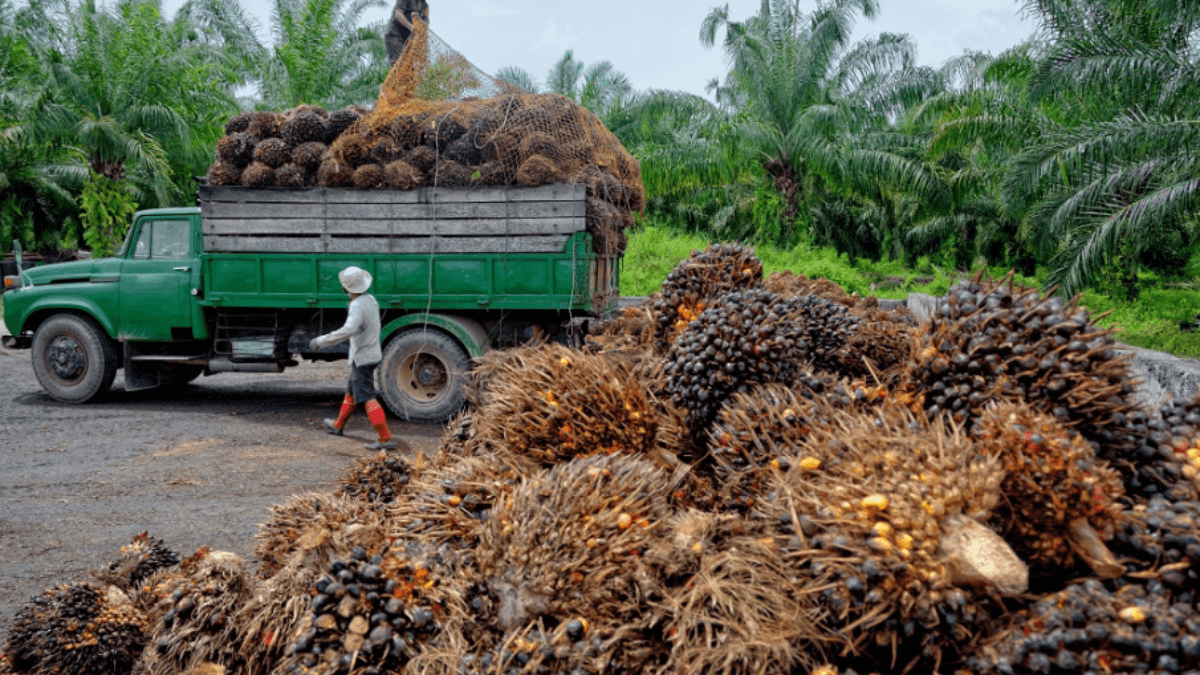News in brief:
– Palm oil prices in Nigeria surged by 120% due to high demand and climate-related supply challenges.
– Nigeria must address its 1 million metric ton shortfall through policies, land expansion, and climate-resilient practices.
Palm oil prices in Nigeria have seen a dramatic increase of 120% over the past year. Due to a combination of growing industrial demand and supply shortages, the cost of palm oil has surged, impacting both domestic and global markets.
Price hike driven by demand and supply issues
According to a recent market survey by BusinessDay, the price of a 5-litre keg of palm oil has risen from ₦5,000 in November 2023 to ₦11,000 in November 2024. Similarly, the cost of a 10-litre keg has surged from ₦10,000 to ₦22,000, marking a 120% increase.
This price hike is attributed to rising demand for palm oil and its derivatives, particularly palm stearin, a byproduct of palm oil. Stearin is increasingly used in the production of cosmetics, pharmaceuticals, and soaps as a substitute for tallow, which has become more expensive.
The impact of climate change on palm oil production
Nigeria, which consumes around 2.5 million metric tons of palm oil annually, is facing a significant supply gap. While local production stands at 1.4 million metric tons, there is still a shortfall of 1 million metric tons, which is currently filled through imports. However, unfavourable import policies and the lack of foreign currency are making it difficult to meet this demand.
Henry Olatunoye, former president of the National Palm Produce Association of Nigeria, emphasised the urgent need to convert more forested land into palm oil plantations to address the supply shortfall. He also highlighted the challenges posed by climate change, which is diminishing the supply of palm oil. Extreme weather conditions, such as floods and droughts, are already damaging agricultural land, which in turn affects palm oil production.
Nigeria’s palm oil industry in a global context
Nigeria is the world’s fifth-largest producer of palm oil, producing approximately 1.4 million metric tons annually. However, countries like Indonesia and Malaysia dominate global production, with 50 million metric tons and 19 million metric tons, respectively. The Nigerian palm oil sector, which largely relies on smallholders and medium-sized plantations, has the potential for significant growth. However, it faces challenges in production efficiency, with an average yield of less than 0.5 tons per hectare.
Experts believe that Nigeria could increase its palm oil production and reduce imports if the government enacts trade-friendly policies and boosts domestic manufacturing. The Central Bank of Nigeria’s Oil Palm Development Initiative (OPDM) aims to double palm oil production, but ongoing challenges like climate change and policy gaps need to be addressed to ensure long-term growth.
With palm oil prices soaring, it is clear that the industry needs urgent reforms to meet growing demand. Climate change, production inefficiencies, and import barriers must be tackled if Nigeria is to become self-sufficient in palm oil production and reduce its reliance on imports.



